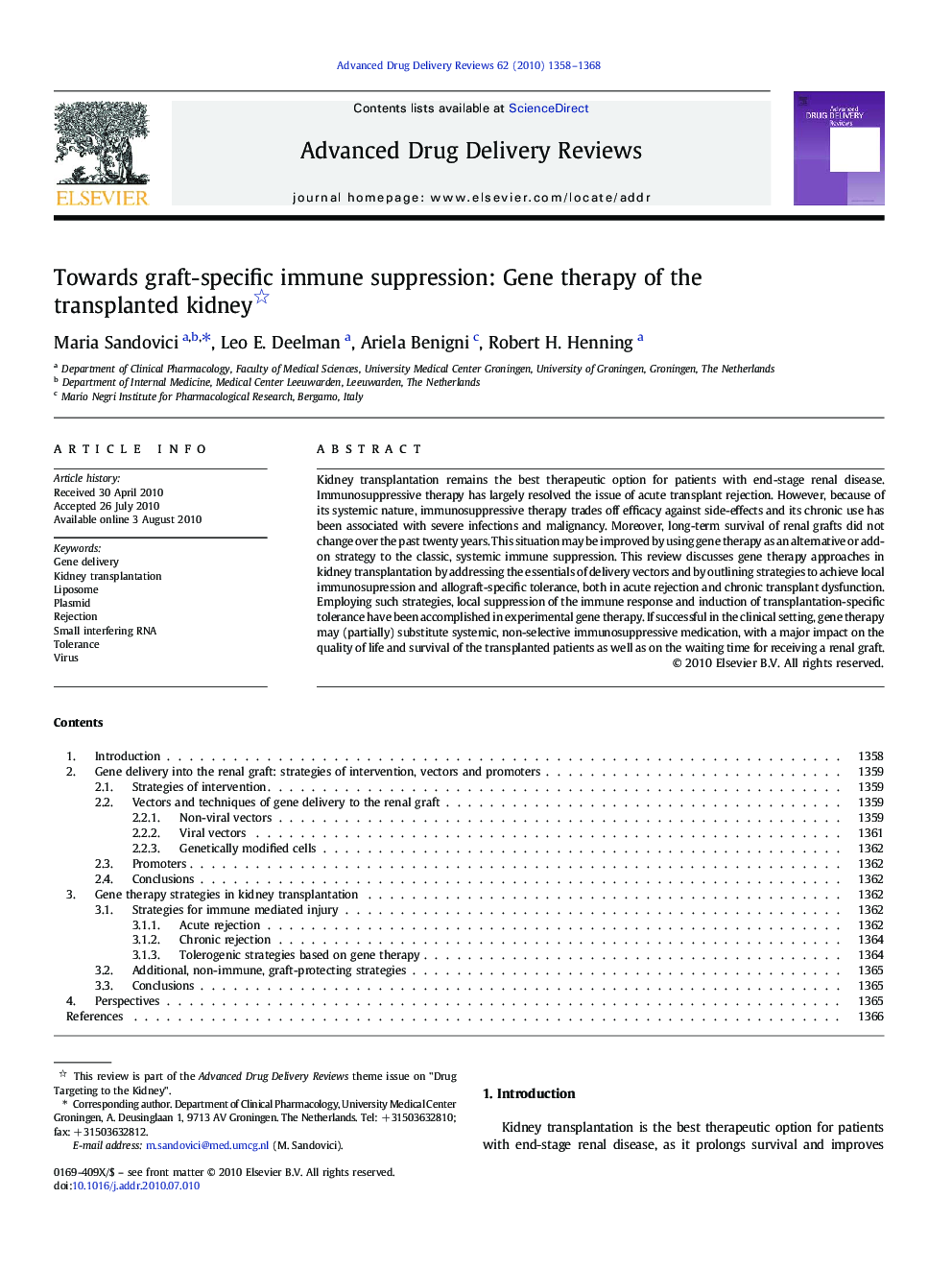| Article ID | Journal | Published Year | Pages | File Type |
|---|---|---|---|---|
| 2071303 | Advanced Drug Delivery Reviews | 2010 | 11 Pages |
Kidney transplantation remains the best therapeutic option for patients with end-stage renal disease. Immunosuppressive therapy has largely resolved the issue of acute transplant rejection. However, because of its systemic nature, immunosuppressive therapy trades off efficacy against side-effects and its chronic use has been associated with severe infections and malignancy. Moreover, long-term survival of renal grafts did not change over the past twenty years. This situation may be improved by using gene therapy as an alternative or add-on strategy to the classic, systemic immune suppression. This review discusses gene therapy approaches in kidney transplantation by addressing the essentials of delivery vectors and by outlining strategies to achieve local immunosupression and allograft-specific tolerance, both in acute rejection and chronic transplant dysfunction. Employing such strategies, local suppression of the immune response and induction of transplantation-specific tolerance have been accomplished in experimental gene therapy. If successful in the clinical setting, gene therapy may (partially) substitute systemic, non-selective immunosuppressive medication, with a major impact on the quality of life and survival of the transplanted patients as well as on the waiting time for receiving a renal graft.
